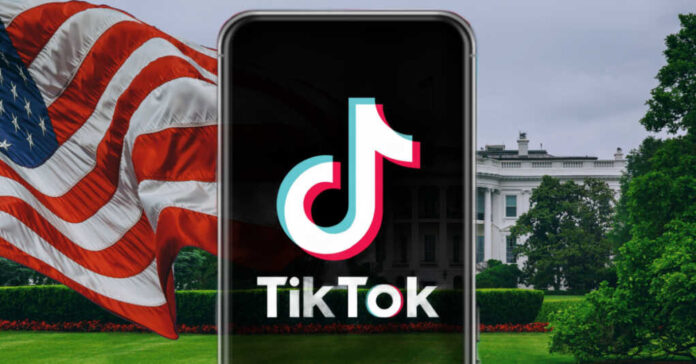
In a recent social media post, entrepreneur Elon Musk expressed deep concerns about a proposed bipartisan bill aiming to ban the Chinese-owned app TikTok. According to Musk, the legislation extends beyond TikTok, raising questions about censorship and increased government control over social media platforms.
Musk’s critique was sparked by a post from Rep. Thomas Massie (R-Ky.), who vehemently opposed the bill, labeling it a “trojan horse” in a social media post. The Congressman pointed out a specific clause in the bill that defines a “foreign adversary controlled application” to include a website, not just mobile applications.
Musk and Massie highlighted a provision penalizing internet hosting services for distributing, maintaining, or updating a “foreign adversary controlled application” within the United States. The proposed legislation, known as H.R. 7521 or the Protecting Americans from Foreign Adversary Controlled Applications Act, recently received unanimous approval from the House Committee on Energy and Commerce after passing in the Senate.
If the bill becomes law, TikTok would be required to sever ties with its Chinese parent company, ByteDance, within six months or face a ban in the United States. President Joe Biden has indicated his willingness to sign the bill into law, and the House is set to vote on it soon.
Critics argue that the proposed ban raises concerns about censorship and government control over online platforms. Musk and Massie’s reservations stem from the bill’s potential implications beyond TikTok. The bill would allow the government to exert authority over internet hosting services and potentially ban websites deemed “foreign adversary controlled.”
While these concerns are valid, it’s essential to consider the unique challenges posed by TikTok. Brendan Carr, a senior Republican commissioner on the Federal Communications Commission, emphasized the platform’s vulnerability to Chinese Communist Party (CCP) influence. Carr highlighted that TikTok, operating within China, is subject to stringent national security laws that mandate compliance with CCP surveillance and data-sharing practices.
In an op-ed for Newsmax, Carr underscored TikTok’s departure from other Big Tech giants due to its extensive collection and sharing of private data from U.S. users with China. Despite assurances of data segregation through initiatives like “Project Texas,” Carr argued that TikTok’s Chinese personnel have consistently disregarded these commitments, compromising American privacy and data security.
Former President Donald Trump, a vocal critic of TikTok, displayed a nuanced perspective on the app’s national security implications. While echoing concerns about potential threats, Trump emphasized the importance of considering both TikTok’s positive and negative aspects. His caution against an outright ban reflected a strategic understanding of the broader digital landscape, expressing concerns that such a move could unintentionally bolster competitors like Facebook.
During an interview with CNBC’s “Squawk Box” on Monday morning, former President Donald Trump shared his nuanced perspective on TikTok, acknowledging both its positive and negative attributes. Trump emphasized the dual nature of the app, recognizing its merits and shortcomings. Specifically, he highlighted concerns about the potential expansion of Facebook in the absence of TikTok, a sentiment rooted in his critical view of the social media giant.
In his words, Trump expressed, “There’s a lot of good, and there’s a lot of bad with TikTok. But I don’t like that without TikTok; you can make Facebook bigger.” This statement reflects his strategic concern about the dominance of Facebook in the absence of TikTok as a competitor. Notably, Trump expressed his firm conviction, referring to Facebook as an “enemy of the people.” This characterization reveals his deep-seated reservations about the impact and influence of major social media platforms, particularly Facebook, on the public.
Trump’s insightful approach underscored his commitment to addressing national security concerns while maintaining a balanced perspective on the tech industry’s complex dynamics. His ability to navigate these intricacies showcased a pragmatic approach to safeguarding American interests in the ever-evolving digital realm.
During his presidency, Trump issued an executive order in 2020 identifying China-owned apps as potential threats to national security. Legal challenges from TikTok, coupled with the need for congressional authority, hindered the implementation of these measures.
As the debate over the proposed TikTok ban unfolds, it’s crucial to balance addressing national security concerns and ensuring that legislative actions don’t inadvertently infringe upon free expression or grant excessive government control. The stakes are high, and the outcome could have lasting implications for the future of social media and online communication in the United States.







